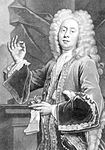Related Research Articles
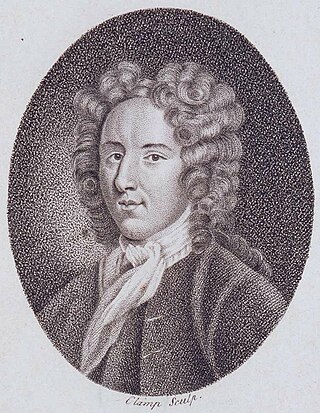
George Farquhar was an Irish dramatist. He is noted for his contributions to late Restoration comedy, particularly for his plays The Constant Couple (1699), The Recruiting Officer (1706) and The Beaux' Stratagem (1707).
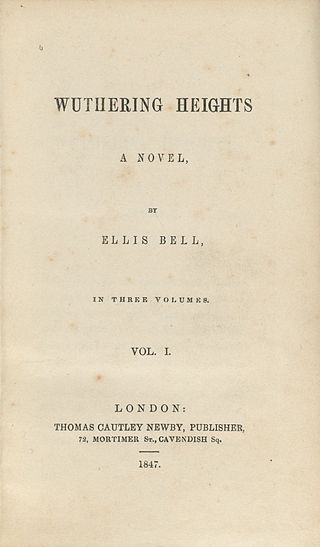
Wuthering Heights is the only novel by the English author Emily Brontë, initially published in 1847 under her pen name "Ellis Bell". It concerns two families of the landed gentry living on the West Yorkshire moors, the Earnshaws and the Lintons, and their turbulent relationships with the Earnshaws' foster son, Heathcliff. The novel, influenced by Romanticism and Gothic fiction, is considered a classic of English literature.

Joseph Alberic Twisleton-Wykeham-Fiennes, known as Joseph Fiennes, is an English actor of film, stage, and television. Fiennes is particularly known for his versatility and period pieces. Journalist Zoe Williams observed that "he seemed to be the go-to actor for English cultural history". His numerous accolades include one Screen Actors Guild Award and nomination for a British Academy Film Award.
This article contains information about the literary events and publications of 1699.

William Howard Schuman was an American composer and arts administrator.
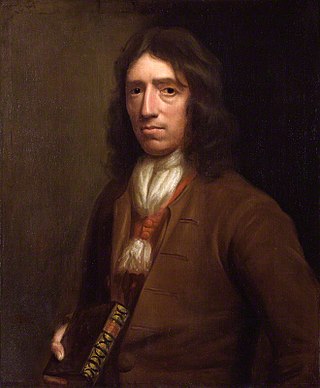
William Dampier was an English explorer, pirate, privateer, navigator, and naturalist who became the first Englishman to explore parts of what is today Australia, and the first person to circumnavigate the world three times. He has also been described as Australia's first natural historian, as well as one of the most important British explorers of the period between Sir Francis Drake and Captain James Cook ; he "bridged those two eras" with a mix of piratical derring-do of the former and scientific inquiry of the latter. His expeditions were among the first to identify and name a number of plants, animals, foods, and cooking techniques for a European audience, being among the first English writers to use words such as avocado, barbecue, and chopsticks. In describing the preparation of avocados, he was the first European to describe the making of guacamole, named the breadfruit plant, and made frequent documentation of the taste of numerous foods foreign to the European palate at the time, such as flamingo and manatee.
Isaac Bickerstaffe or Bickerstaff was an Irish playwright and librettist.

Susanna Centlivre, born Susanna Freeman, and also known professionally as Susanna Carroll, was an English poet, actress, and "the most successful female playwright of the eighteenth century". Centlivre's "pieces continued to be acted after the theatre managers had forgotten most of her contemporaries." During a long career at the Theatre Royal, Drury Lane, she became known as the second woman of the English stage, after Aphra Behn.

Honora "Nano" Nagle was an Irish Catholic religious sister who served as a pioneer of Catholic education in Ireland despite legal prohibitions. She founded the Sisters of the Presentation of the Blessed Virgin Mary, commonly known as the Presentation Sisters, now a worldwide Catholic institute of women religious. She was declared venerable in the Catholic Church on 31 October 2013 by Pope Francis.

Wuthering Heights is a 1939 American romantic period drama film directed by William Wyler, produced by Samuel Goldwyn, starring Merle Oberon, Laurence Olivier and David Niven, and based on the 1847 novel Wuthering Heights by Emily Brontë. The film depicts only 16 of the novel's 34 chapters, eliminating the second generation of characters. The novel was adapted for the screen by Charles MacArthur, Ben Hecht and John Huston (uncredited). The supporting cast features Flora Robson and Geraldine Fitzgerald.

Robert Wilks was a British actor and theatrical manager who was one of the leading managers of Theatre Royal, Drury Lane in its heyday of the 1710s. He was, with Colley Cibber and Thomas Doggett, one of the "triumvirate" of actor-managers that was denounced by Alexander Pope and caricatured by William Hogarth as leaders of the decline in theatrical standards and degradation of the stage's literary tradition.

The Recruiting Officer is a 1706 play by the Irish writer George Farquhar, which follows the social and sexual exploits of two officers, the womanising Plume and the cowardly Brazen, in the town of Shrewsbury to recruit soldiers. The characters of the play are generally stock, in keeping with the genre of Restoration comedy.

Victory is a psychological novel by Joseph Conrad first published in 1915, through which Conrad achieved "popular success."
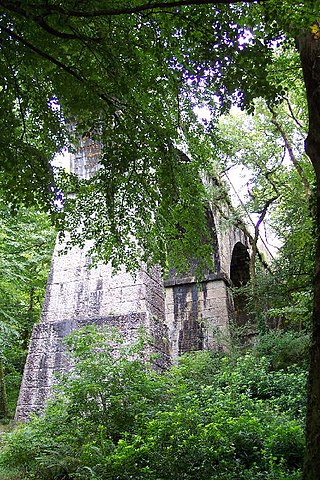
The Treffry Viaduct is a historic dual-purpose railway viaduct and aqueduct located close to the village of Luxulyan, Cornwall in the United Kingdom. The viaduct crosses the Luxulyan Valley and is part of the Treffry Tramways. It forms an integral part of the Cornwall and West Devon Mining Landscape, a World Heritage Site. It is scheduled under the Ancient Monuments and Archaeological Areas Act 1979 and due to its poor condition is on Historic England's, Heritage at Risk Register.
William Farquhar Conton was a Sierra Leone Creole educator, historian and acclaimed novelist.
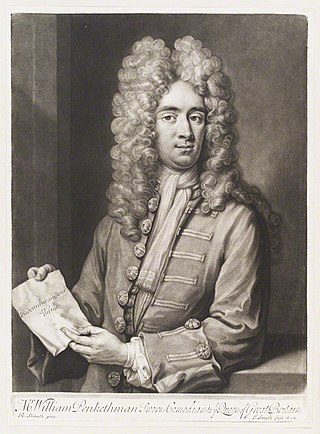
William Pinkethman was an English comic actor, a low comedian with a droll style, and theatre manager. He was considered an imitator of Anthony Leigh.

Thomas Walker (1698–1744) was an English actor and dramatist.

The Constant Couple is a 1699 play by the Irish writer George Farquhar. It is part of the Restoration comedy tradition, and is often described as a sentimental comedy. It marked the first major success of Farquhar's career. A series of comic misunderstandings are triggered when three rivals vie for the hand of the wealthy heiress Lady Lurewell.
John Mills (c.1670–1736) was a British stage actor. A long-standing part of the Drury Lane company from 1695 until his death, he appeared in both comedies and tragedies. His wife Margaret Mills was an actress, and his son William Mills also became an actor at Drury Lane.
Joseph Williams was an English stage actor of the seventeenth and early eighteenth century.
References
- ↑ Earnshaw p.136
